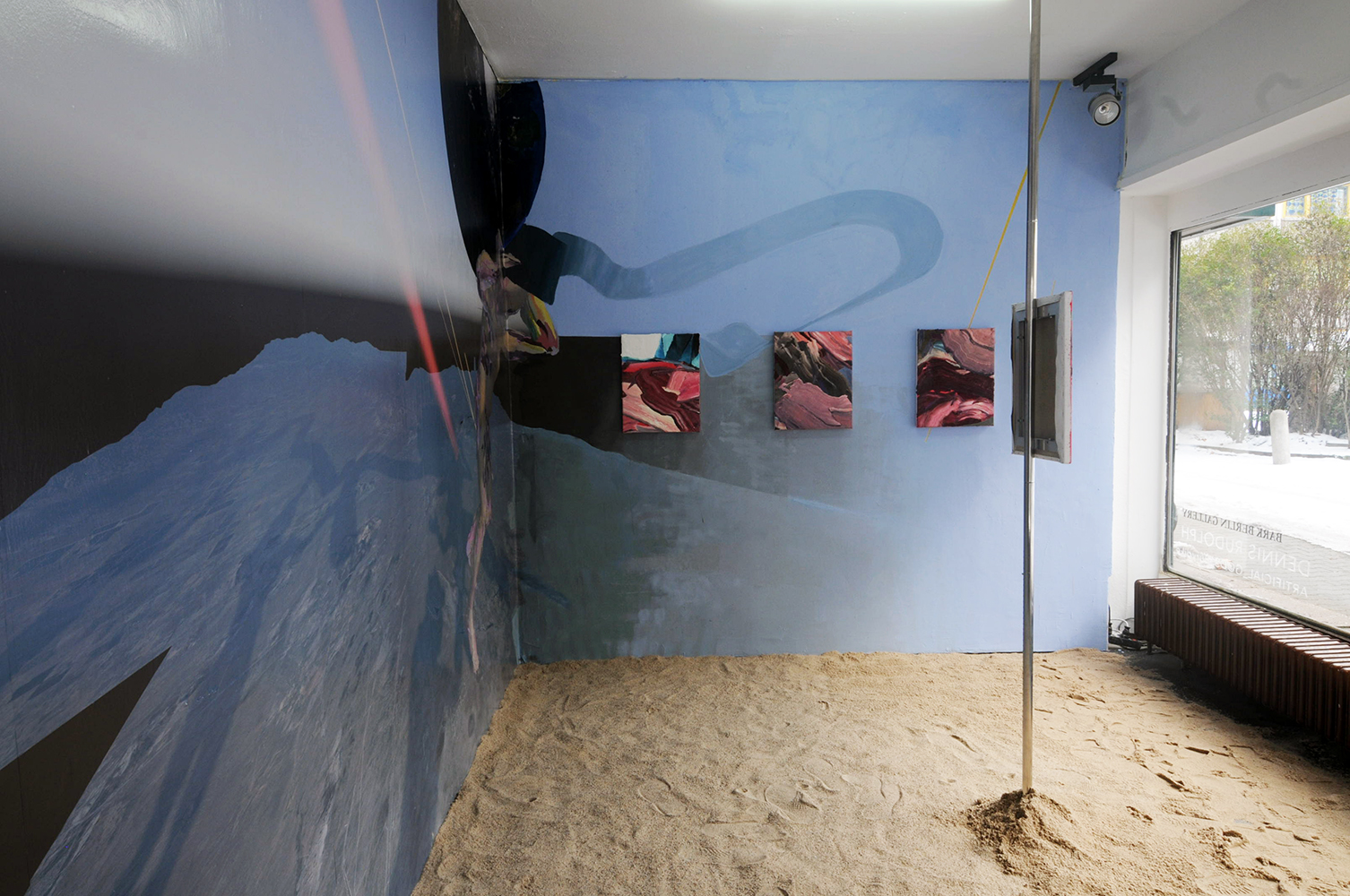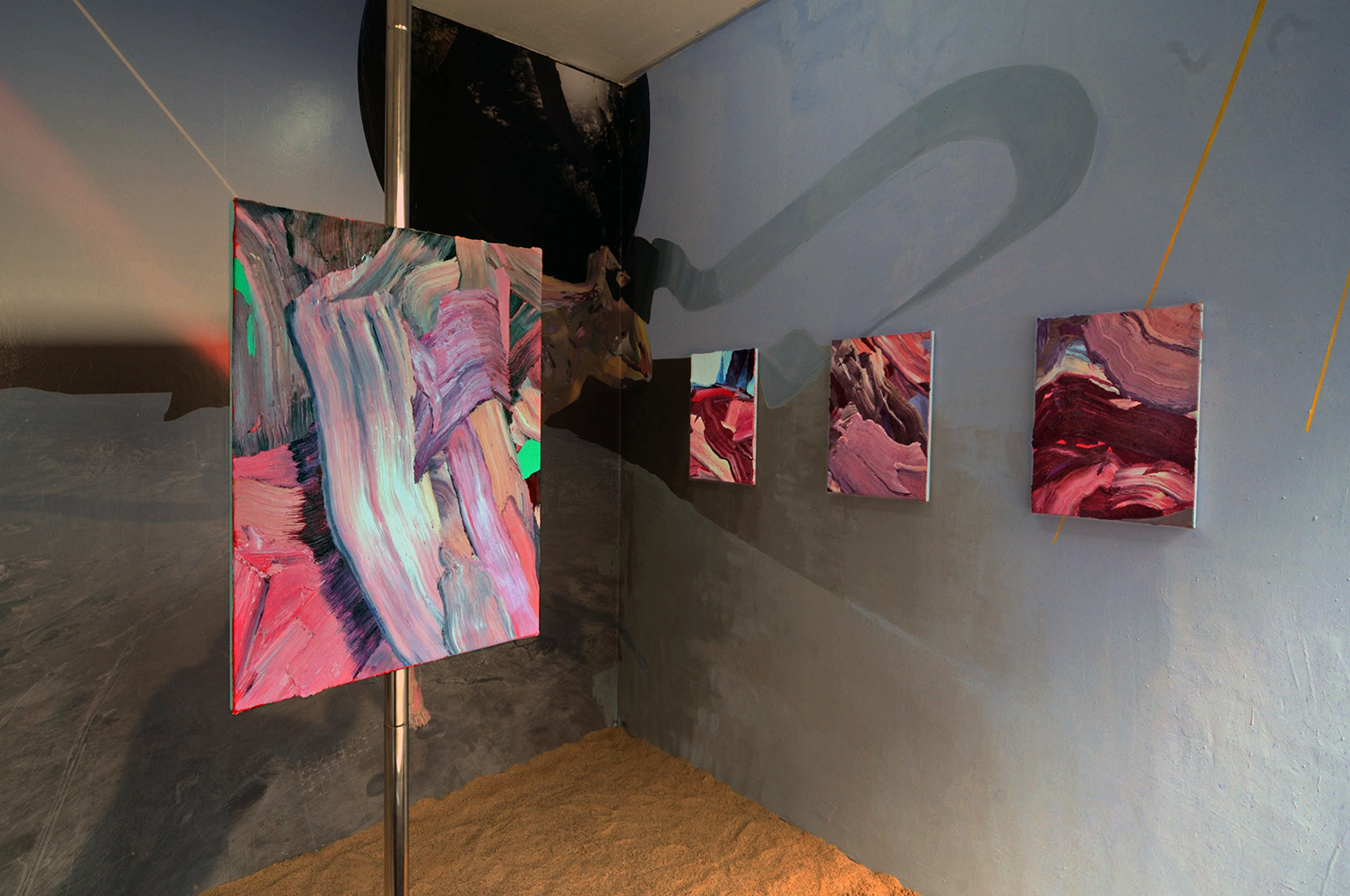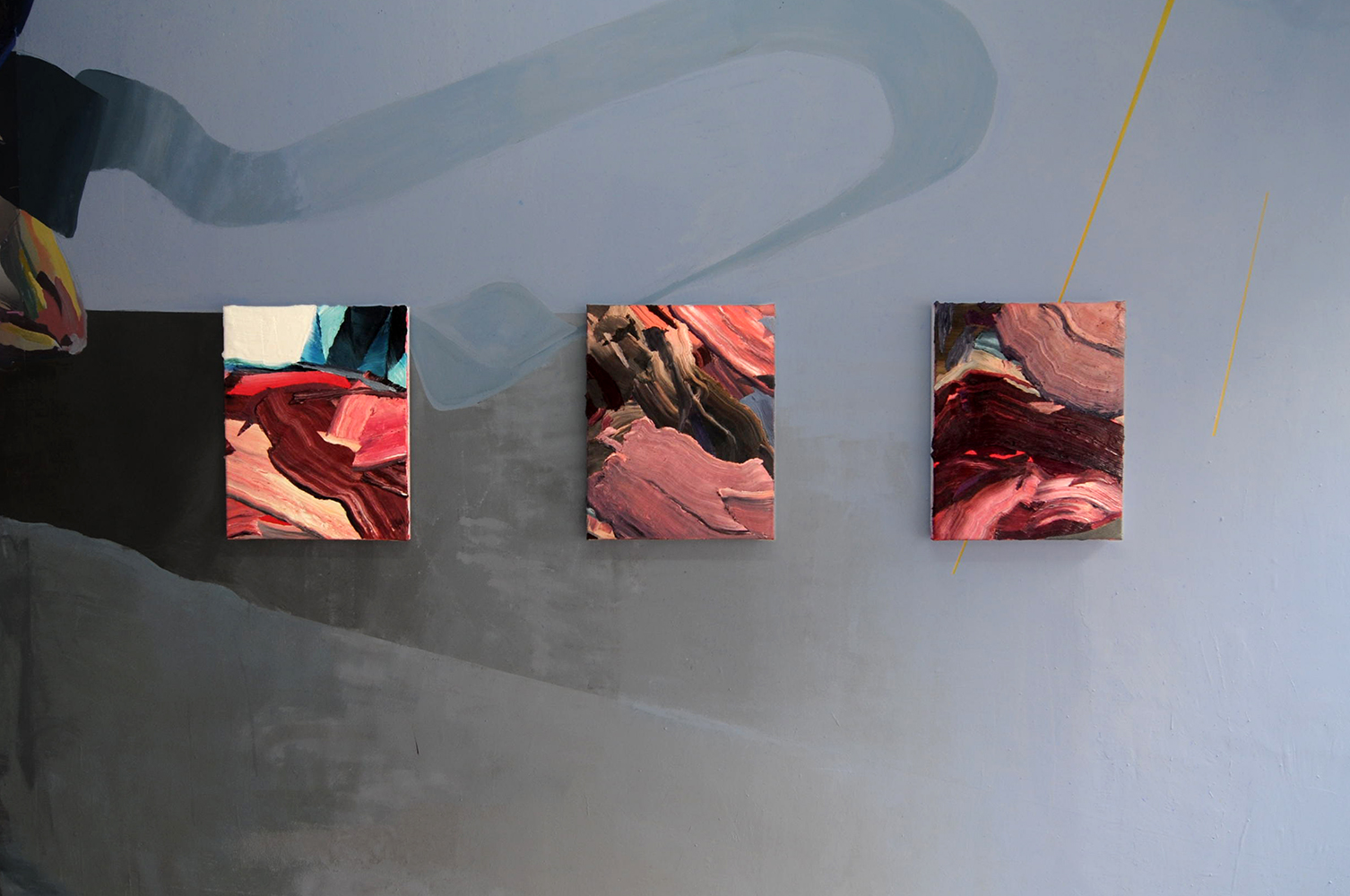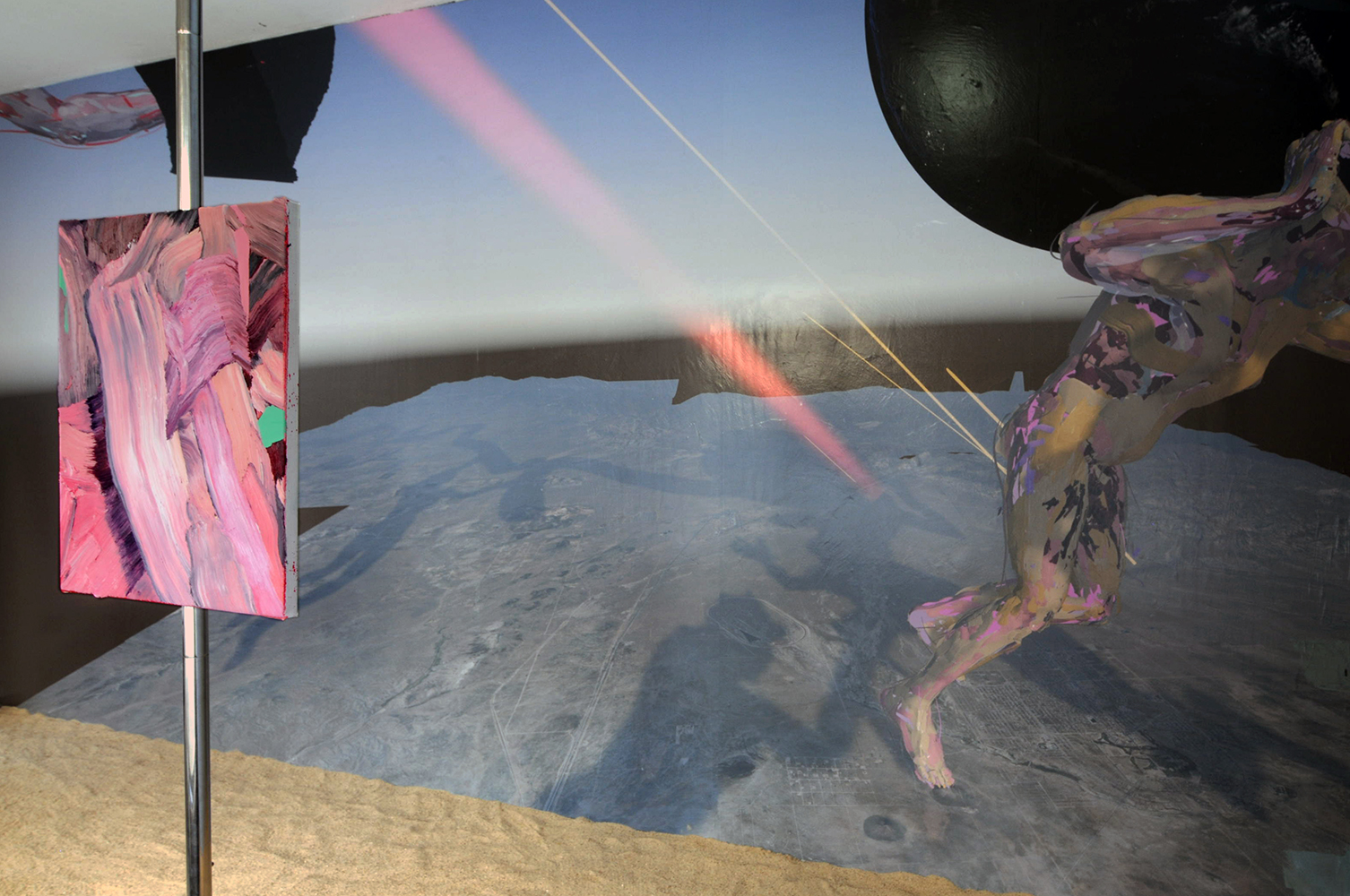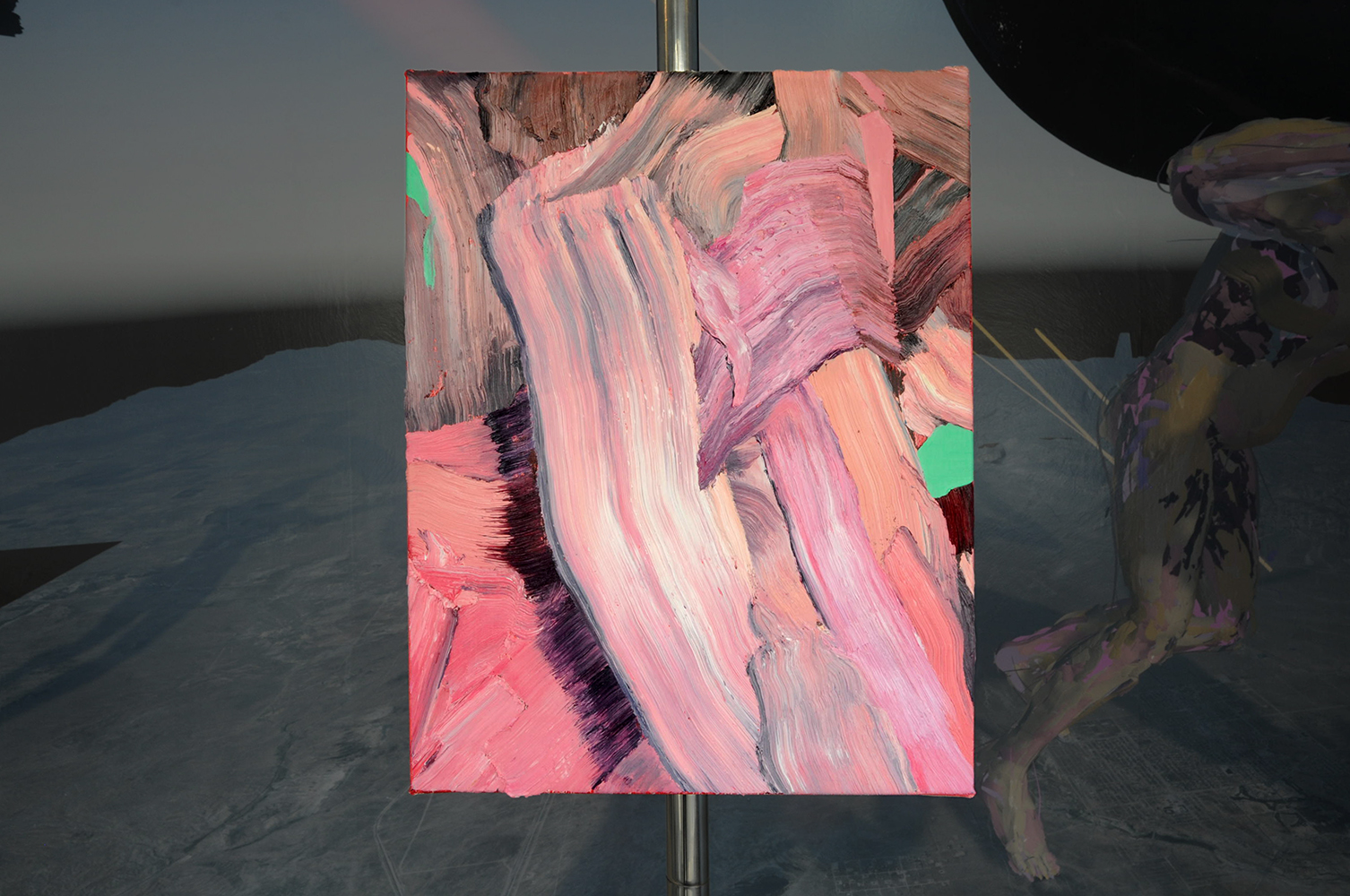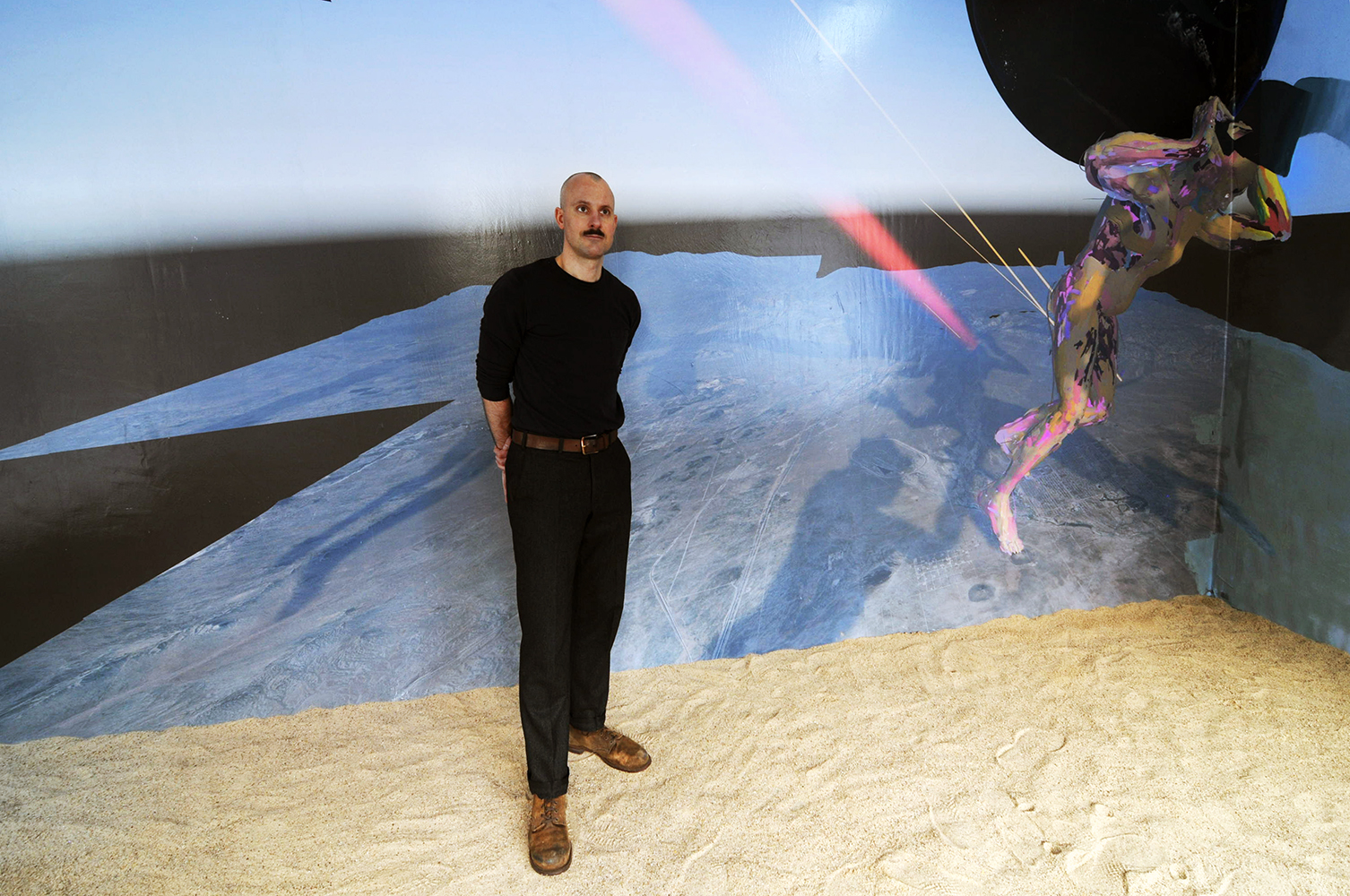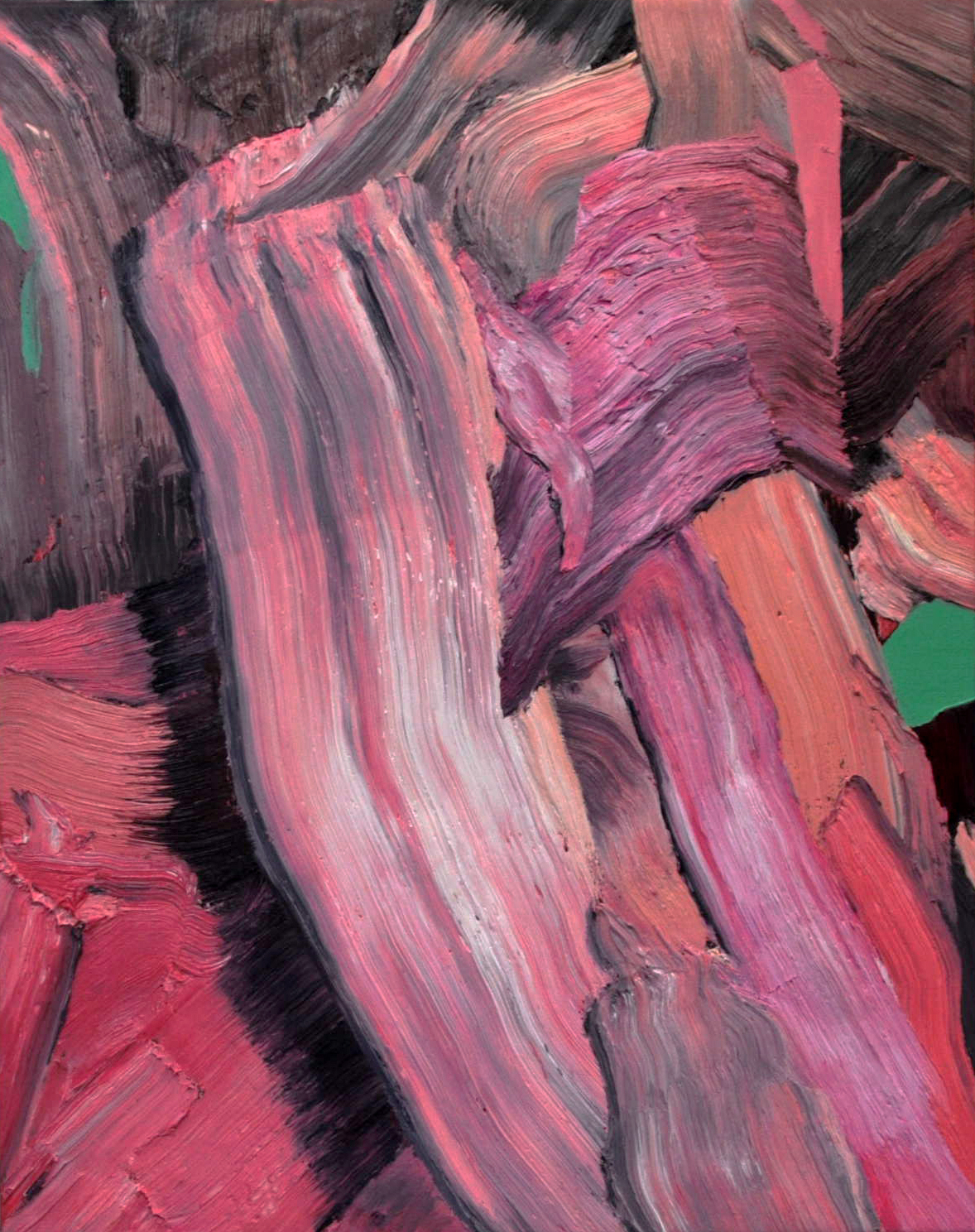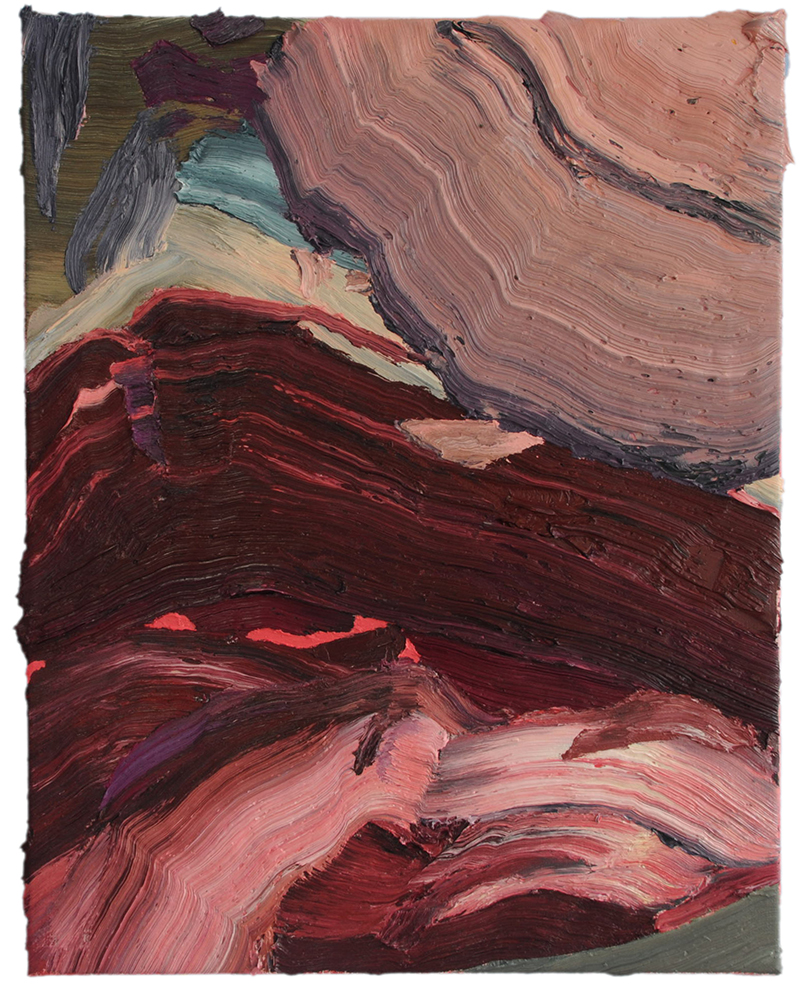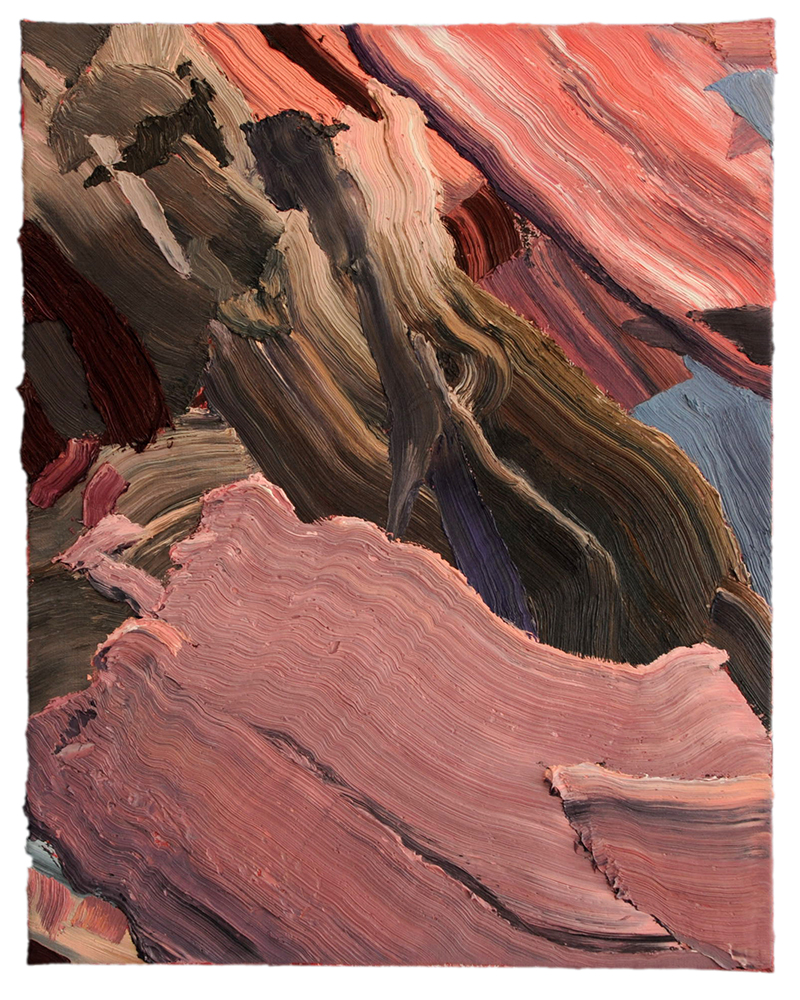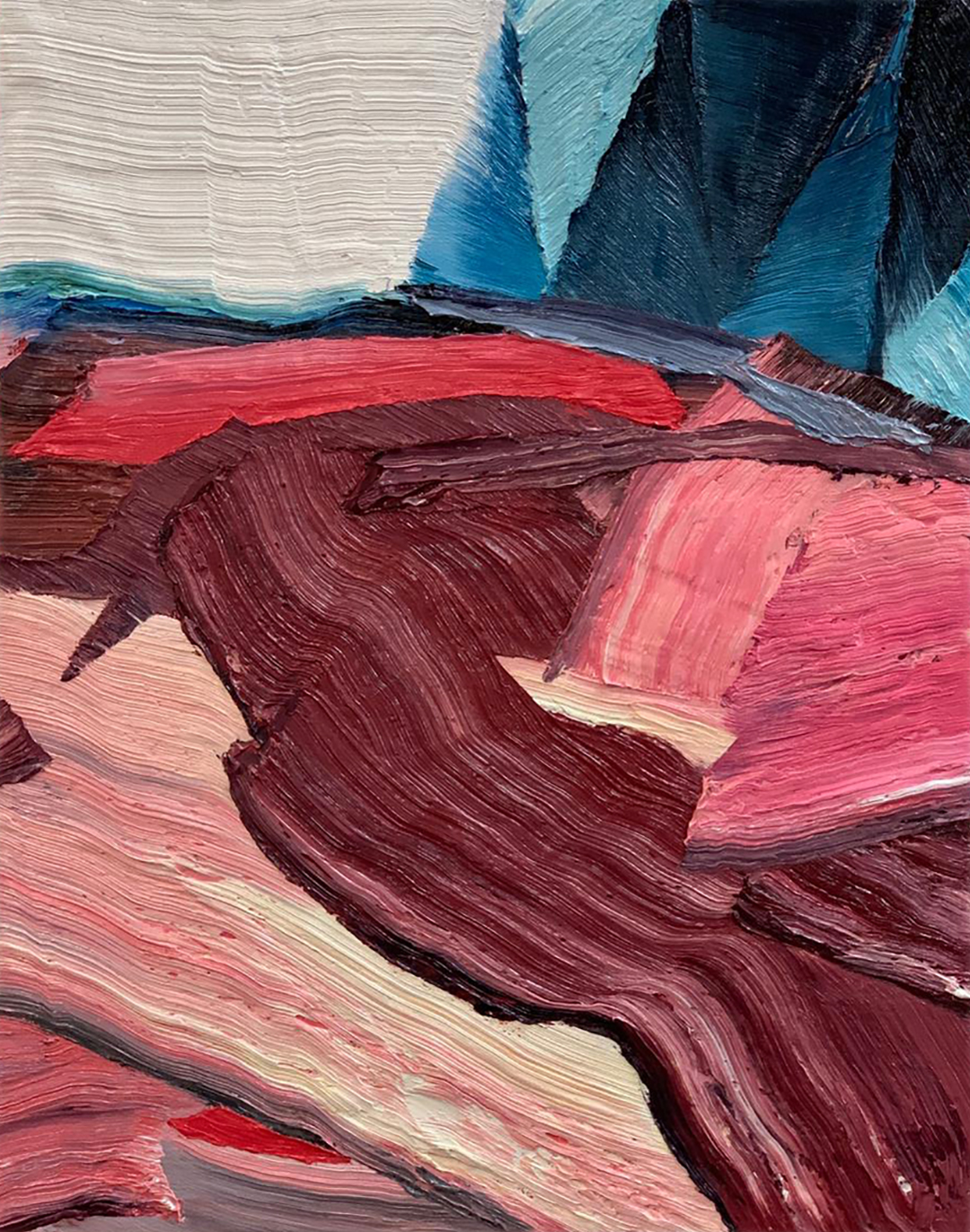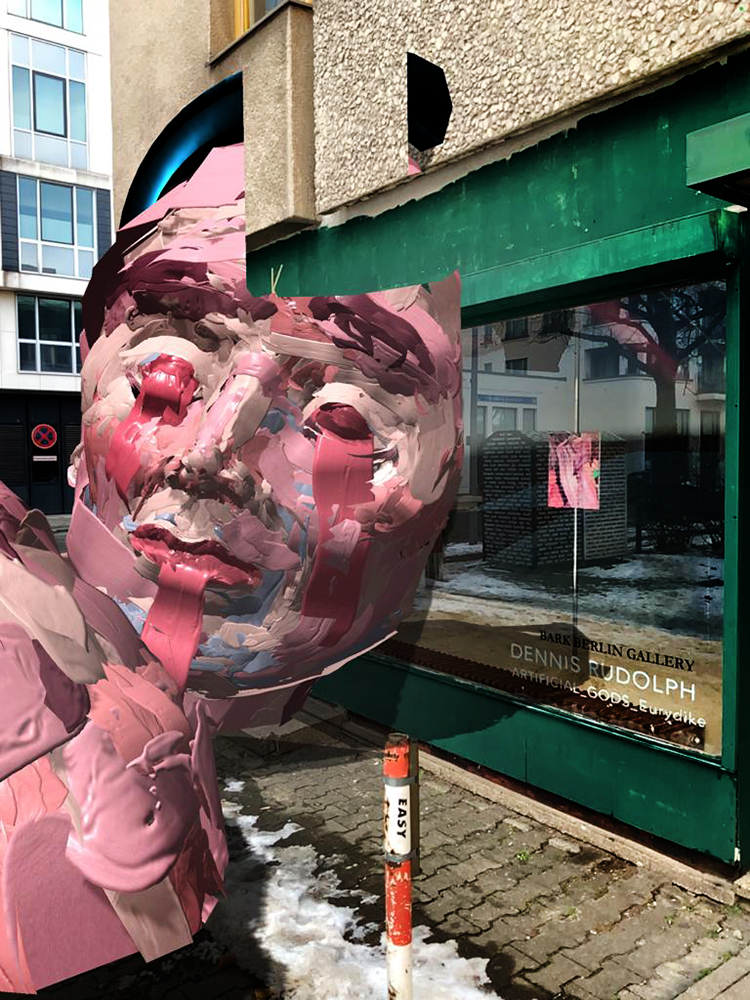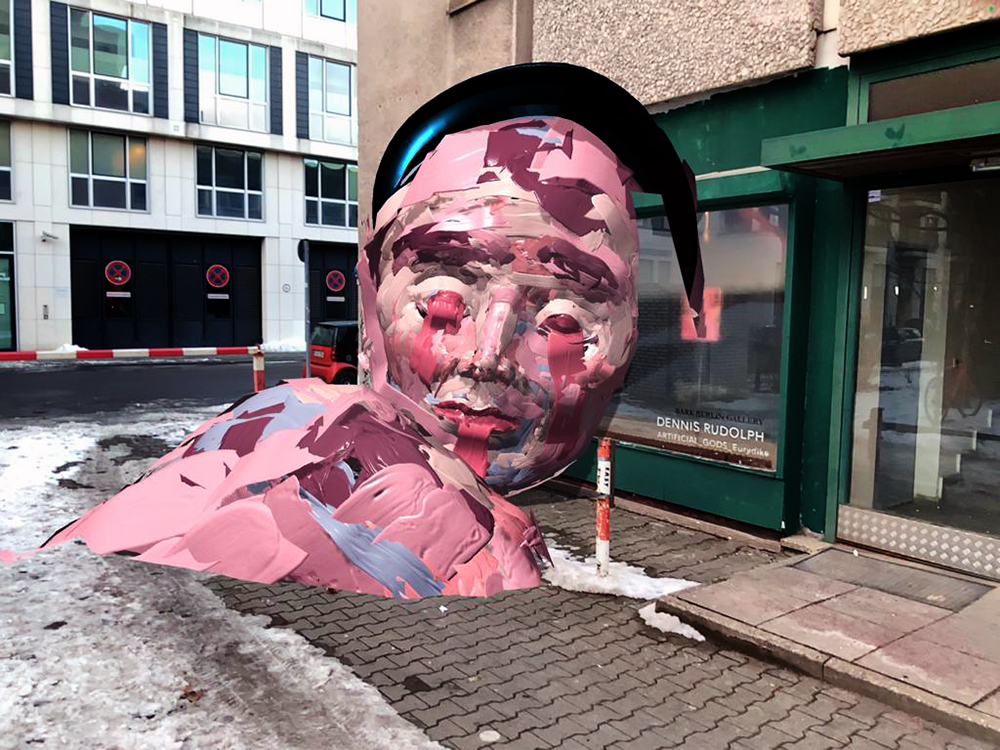Past
Dennis Rudolph
ARTIFICIAL_GODS_Eurydike
Dietrich Brüggemann
In earlier days, the world was one big fat coherent thing that made sense. Then modernity came and blew it all to pieces. Now Dennis Rudolph comes along and puts it back together again. The abstract painting, robbed of its object by Modernism a hundred years ago, is no longer abstract, but turns out to be part of a larger whole that we only see when we use our phones. The oil painting no longer sits on the wall in sad isolation, but blends into a vast virtual landscape that includes every painting ever made. In turn, virtual reality is no longer a free-floating fantasy world, but connects to our physical realm as Dennis Rudolph anchors it on the million-ton pillars of five millenia of mythology. And our smartphones are no longer just the addiction machines we spend hours and years and lives glued to, but become part of the art. The automatic action that we’ve conditioned ourselves to perform – pull phones out and take pictures – turns us into accomplices of the artwork, thus stopping us from performing that exact automatic action (raise phones and take pictures). Dennis Rudolph makes us executors of a mankind that's done with its own history and wants to invent new worlds, but can’t help only ever looking back. He exposes us our entanglement, but also makes us step out of it and look at ourselves. We are Orpheus, who could transform the world with a song, and our cultureal history is Eurydice, who unfortunately died, but we brought her back from the land of the Dead, still we’re not allowed to turn around and look at her. Dennis Rudolph forces us to act like Orpheus, look back, and watch as the gods that we created drag our undead love back to the underworld – this time, forever.



